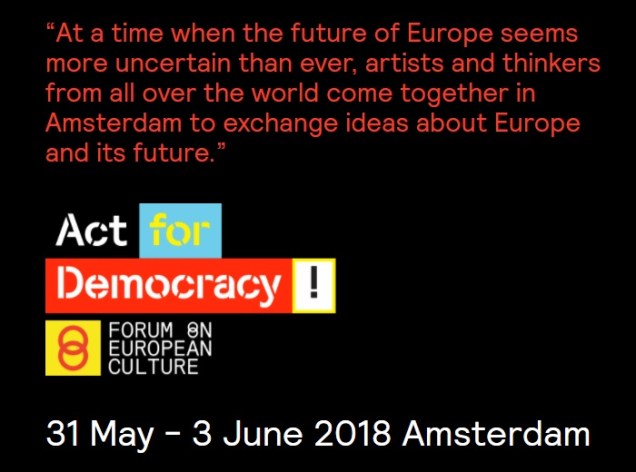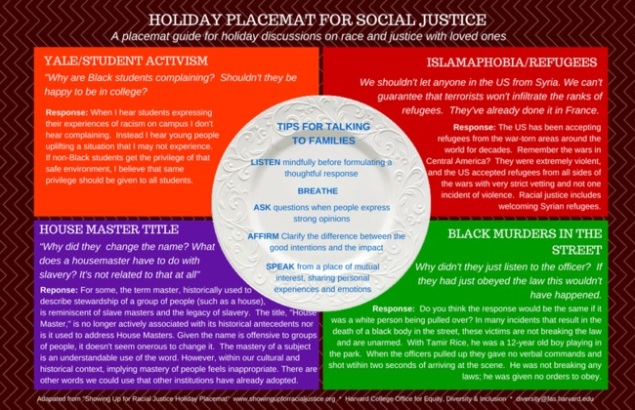
–
The American people support stronger immigration controls but disapprove of their government’s inhumane practice of separating child migrants from their asylum-seeking parents. For an increasingly partisan media which now all but explicitly advocates for open borders, this compassion tempered with a desire to uphold the rule of law and defend national borders simply does not compute.
One of the traits of some accomplished liars is the fact that they are able to make themselves believe their own deceptions. This ability to convince oneself of one’s own lies is what makes many pathological liars so effective, but even many people who are not pathological liars can come to “misremember” certain events after decades of repeating a particular narrative – see any celebrity or political autobiography for abundant evidence.
We see the same thing happening now with many in the political and media elite as they struggle to understand public attitudes toward immigration in light of the Trump administration’s botched family separation of illegal entrant asylum seekers policy. An increasing number of commentators are struggling to reconcile widespread public outrage at the present situation impacting detained child asylum seekers with the known fact that many people favour stricter immigration controls and lower overall levels of immigration.
Having spent so long deliberately conflating all kinds of immigration – legal and illegal, economic migration and asylum seeking – for political purposes which are as obvious as they are overtly manipulative, many opinion-setters fail to realise that the public still hold a more nuanced view of the issue. It suits the purposes of tacit open borders supporters in the media to refer to everyone as “immigrants” regardless of whether they cross the border legally or not, or whether they move for economic advantage or to flee imminent danger to their lives, because they can then portray anyone who expresses the slightest equivocation about illegal immigration or abuse of the asylum process as being hostile to immigrants in general.
But after years of making this deliberate conflation it now seems as though many politicians and activist journalists have come to believe their own propaganda – that all immigrants are one and the same – to the extent that it causes confusion and cognitive dissonance when voters persist in seeing these categories as distinct classes of migrant requiring a customised response rather than a blanket one, more generous in some cases and stricter in others.
The latest example of this cognitive dissonance comes in an article by academic and author Yascha Mounk for Slate, in which Mounk presents the fact that Americans both oppose Trump’s draconian family separation policy while still supporting stricter immigration control as some kind of stunning discovery. Mounk is a perceptive author willing to acknowledge some of the failings of his own side, as I point out in my review of his recent book “The People vs Democracy”, but his ideological blind spot on the subject of illegal immigration is acute.
Celebrating the Trump administration’s apparent climbdown over detaining asylum seeking children separately from their parents, Mounk marvels:
Though it has so far gone largely unnoticed, the last few days have also demonstrated something else: that the fronts in the fight about immigration in the United States—and across much of the western world—are much less clear-cut than commentators usually assume.
It would be tempting to characterize the high-voltage fights about immigration, integration, and refugees that have emerged over the past years in countries from Italy to Britain and from Germany to the United States as a simple clash between left and right; between the advocates of an open and of a closed society; or, most simply, between the compassionate and the bigoted. Given the evident cruelty of the policies pursued by the Trump administration, as well as the way in which immigration reform has become the object of a determined partisan fight between Democrats and Republicans, there is obviously some truth to that view. But the deeper you dig, the harder it is to avoid the conclusion that the most important split about immigration does not run between different camps—but pits competing instincts against each other within the souls of most citizens.
The only people tempted to characterise the immigration debate as a fight between open and closed, compassionate and bigoted, are the left-leaning political commentariat who marinate in ideological groupthink and who were so detached from the country on which they report that they utterly failed to anticipate the appeal of Donald Trump’s presidential campaign. And the only bigotry here is the sanctimonious assumption, nearly uniformly held by the media class, that any qualms about unrestricted immigration or desire for border enforcement amounts to an absence of compassion.
One doesn’t know whether to be insulted at Mounk’s next realisation or simply grateful that a mainstream opinion-setter has finally acknowledged the obvious:
The country is deeply divided about the overall level of immigration. But in virtually all polls, more Americans seek to decrease than to increase immigration. And even when they are asked whether they would like to halve current immigration levels, 48 percent favored such a drastic reduction, with 39 percent opposed.
But if the desire to curb migration and secure the border runs deep in most countries, so too does the popular revulsion at state cruelty against immigrants. In fact, while ordinary citizens have, in many countries, rebelled against traditional political elites in part because they don’t trust them to take robust measures to curb immigration, they are also surprisingly willing to punish governments that do take extreme measures to keep out refugees or illegal immigrants. In the United States, for example, four out of five Americans oppose the revocation of protections for the so-called DACA kids, undocumented immigrants who were brought to the country by their parents when they were children. And according to polls taken in recent days, two out of three reject the Trump administration’s recent practice of separating parents from their children.
One might think that this fact – that the great mass of public opinion favours “robust” measures to curb illegal immigration but rejects “extreme” measures – would have guided politicians toward an equitable compromise involving compassion toward those illegal immigrants already in the United States leading productive lives while taking a stricter stance on border security and enforcement measures against future illegal immigrants. But of course no such compromise has even been entertained, not least because a vast swathe of the American Left has quietly moved toward a de facto open borders position whereby any opposition to illegal immigration is painted as tantamount to racism, though at present they lack the courage to openly declare for open borders.
Indeed, the actions of the Left speak louder than their words, inasmuch as they routinely oppose any “future enforcement for present amnesty” deal, denouncing such enforcement proposals as inherently racist and thus revealing that when push comes to shove, they care far more about securing the uninterrupted future flow of illegal immigrants than securing the status and alleviating the plight of current illegal immigrants. This fact is never picked up by mainstream commentators from the left to the respectable centre, because it so closely aligns to prevailing opinion among elites that it is considered unremarkable and unworthy of comment.
Still, Mounk marvels at the fact that Americans can be so heartless as to oppose de facto open borders but still hold a sufficient shred of decency that they oppose detaining children indefinitely in cages:
It is this tension between a desire to curb migration and an aversion to do so by cruel means that helps to explain the radical swings in public mood we have witnessed in country after country. In the United States, it is clear that Trump’s virulent stance against immigration has done more than just about anything else to get him elected: It was his denigration of Mexican-Americans and his promise to build a wall that set him apart from other candidates for the Republican nomination and turned out much of his base on election day. And yet, the events of the past week also make clear that some of the very same people who favor real curbs on migration, and might even cheer the idea of some kind of wall on large parts of the southern border, will not stand for the separation of children from their parents. When Trump overplayed his hand, the backlash was surprisingly broad, strong and swift.
It is genuinely concerning that this self-evident truth should be so remarkable to opinion-setting elites that it merits a breathless explanatory article by Yascha Mounk in Slate magazine. This much should be obvious to anyone with a brain, but the political and media elites are so used to promoting the idea that all types of migration are equally virtuous and that opposition to (or ambivalence about) any one of them is a sign of moral turpitude that it simply does not compute in their minds when the American people are angry at continual flouting of the national border but simultaneously aghast at the indefinite detention of child asylum seekers separated from their parents.
“After all”, the thought process of these commentators must go, “anyone so bigoted as to object to uncontrolled immigration must also want those detained illegally crossing the border to be treated in the harshest, most cruel way possible”. And then when it turns out that American voters do not feel this way and are not the monsters they are portrayed as on MSNBC or the Op-Ed pages of the New York Times, it provokes widespread confusion among the people who are supposed to represent our cognitive and social elite.
Mounk then points to the Windrush scandal in Britain, in which the UK government deported or attempted to deport many post-war Commonwealth immigrants who had every right to reside in the UK but lacked the paperwork to prove it, out of a desperate desire to hit an unrealistic and foolishly-offered net immigration target:
If Trump is currently experiencing a bit of whiplash, it is a feeling with which politicians in other developed democracies are intimately familiar. In the United Kingdom, for example, Conservatives have long won elections on their promise to restrict immigration to the “tens of thousands.” Theresa May’s hardline stance as home secretary was one of the main reasons why she was popular enough to ascend to the top job in the wake of the Brexit referendum. But when it became clear that her government had tried to deport members of the so-called Windrush Generation— migrants from Commonwealth countries who had been invited to come to Britain in the wake of World War II to fill labor market shortages but never received formal documentation of their immigration status—there was massive public outrage. To appease widespread anger, May had to reverse her policy and to sack Amber Rudd, her successor as home secretary and a close political ally.
Again, the backlash against the unfair harassment of Windrush generation immigrants is treated as something surprising, as though it is somehow remarkable that the cold-hearted British people who want greater control over immigration might also have compassion for those unfairly targeted or harshly treated by their incompetent government.
Mounk accounts for this cognitive dissonance by asserting, without evidence, that the seeming compromise which voters seek – roughly characterised as compassion for current illegal immigrants but stricter enforcement of the border in future – is somehow unrealistic:
The problem with this set of preferences is not so much that it is immoral as that it is impracticable. Since many people are understandably desperate to flee the violence, persecution, and poverty they experience in countries like Syria, Congo, or Honduras, they are willing to go to extreme ends to make it to a place that promises a better life. But that also means that it takes extreme measures to eliminate the incentive to cross borders, or to identify and deport those people who do.
And that is also why so many people on both sides of this debate are conspiring to sustain subtly different versions of the same noble myth: The moderate left mostly talks about avoiding cruelty while the moderate right mostly talks about keeping people out. But both pretend that it is possible to reduce the number of refugees and undocumented immigrants without stooping to the kind of cruelty and violence that most citizens will find hard to bear.
And there is an element of truth to this – at some point, enforcing border security means getting tough with people who flout immigration law and illegal cross the border in future, and this getting tough will inevitably involve detentions or deportations. Mounk calls this “intolerable”, because he writes from the perspective of elitist groupthink which now holds that any immigration enforcement is evil. The great mass of American voters likely disagree, however, and believe that the rule of law requires that lawbreakers are stopped and punished, while carving out generous exceptions for those who were brought to the United States as children or who have lived as model (undocumented) citizens for many years. There is room for compromise here, but because Mounk adopts the extremist position newly taken by many elites (only in the past few years have Democrats found it impossible to even mention immigration enforcement), he finds it exquisitely uncomfortable.
But in truth, the only thing shocking here is that people are shocked – that people who present themselves as experts in policy, political science or analysis are somehow dumbstuck that American voters can simultaneously disapprove of illegal immigration while also disapproving of inhumane treatment of illegal immigrants. Such ignorance is only possible when the political and journalistic elite, the people who set the narrative and write the histories, are sealed in such an airtight ideological bubble of their own making that they have come to believe their own propaganda about detractors of illegal immigration.
To the man on the street, this is simply common sense: Don’t deport the schoolteacher and mother of three children who has lived and contributed to her community for years, deal fairly and swiftly with new asylum claims while preserving family unity and deport those immigrants who commit crimes or who continue to try to enter illegally once some form of amnesty has been passed. The only extremism on display is that of many political elites who happily embrace the carrot while refusing to wield the stick.
Policy-wise, the overlooked extremism in politics comes from a subset of the Democratic Party who have fallen under the spell of activists for whom no immigration or border enforcement will ever be acceptable. So tight a hold does this dogma now have on much of the media and the political class, and so faithfully do many of its members propagate the same worldview, that any collision with reality – with normal Americans who are both compassionate and supporters of the rule of law – comes as a confounding, inexplicable shock.
Quite how the political and media elites can work themselves out of the extreme position of tacitly supporting open borders in which they now find themselves without losing face or being toppled by angry subordinates, I cannot say. It is far from certain that many of them even realise that they have become the extremists, though the more reflective conclusion of Yascha Mounk’s article suggests a glimmer of recognition that the Left’s current puppies and rainbows approach to immigration is not sustainable.
But when esteemed academics and political analysts find themselves shocked at the inherent reasonableness of the American people on the subject of immigration, viewing their pragmatism as “schizophrenia” rather than sanity, it suggests a persistent detachment and divide which urgently needs to be acknowledged and repaired if this country is to knit itself back together in the wake of our present Trumpian schism.

–
Support Semi-Partisan Politics with a one-time or recurring donation:
–
Agree with this article? Violently disagree? Scroll down to leave a comment.
Follow Semi-Partisan Politics on Twitter, Facebook and Medium.







